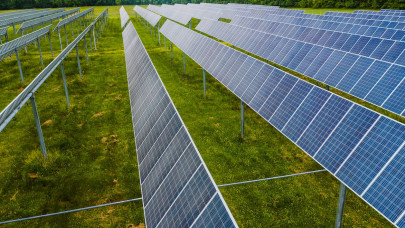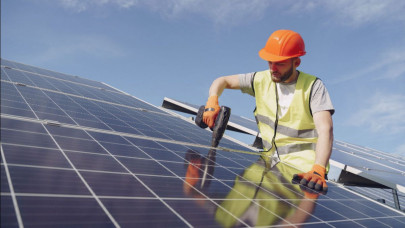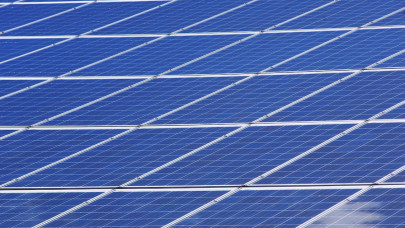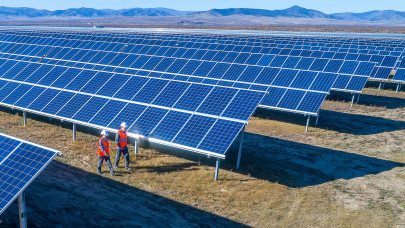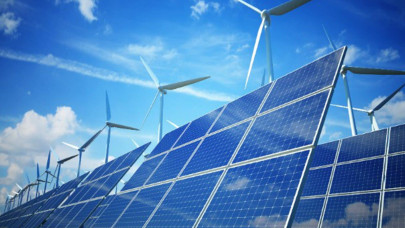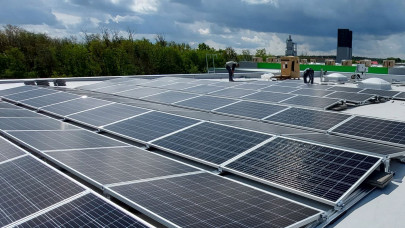What are the key targets Kaufland Romania has set for 2023 as part of its ESG strategy?
As a responsible company, Kaufland Romania is actively working to create a more sustainable and equitable future for all. Our ESG strategy is focused on minimizing the company's environmental impact, promoting social responsibility, and upholding high standards of corporate governance and ethical behavior.
To achieve our goals, we are increasing our energy efficiency and using electricity from renewable sources. We are also taking steps to reduce plastic consumption, including in our packaging, and have provided recycling containers in all our stores for customers. We are shortening our supply chain by partnering with local suppliers and making efforts to combat food waste by addressing both employees and customers.
Likewise, we promote transparency and accountability in our operations, ensure compliance with all relevant laws and regulations, and maintain a strong focus on data privacy and protection.
According to previous reports, the company only uses energy from renewable sources. Is it difficult to keep to such commitments given the current situation in energy markets?
The context may be challenging, but not impossible. Reducing our carbon footprint has been a top priority for us from the very beginning. Switching to renewable electricity and implementing measures that limit consumption play a strategic part in meeting our commitment.
In 2021, over 96% of our total energy consumption was from renewable sources, all certified by our energy suppliers. Energy consumption from non-renewable sources is due to the operation of new stores that have been opened until they are included in the energy supply contract.
We focus on implementing up-to-date energy efficiency solutions and technologies. In 2021, the total investments amounted to 8.5 million lei. For instance, replacing the lighting systems with LED technology in the refrigerated display cases for 22 stores, as well as upgrading the refrigeration plants and switching to a LED lighting system in 8 stores contributed to a reduction in energy consumption of more than 200,887 kWh.
How many Kaufland stores are equipped with photovoltaic panels in Romania? What are the plans for this year? How many panels are we talking about in total?
In 2020, we started equipping our buildings with photovoltaic panels. With an investment of circa €1.5 million in 2021. We have now reached a total of 9061 photovoltaic panels, which supply 4826 MWh/year to 11 of our stores and the logistics centre in Turda.
What additional actions is the company taking to reduce the greenhouse gas emissions of its operations in Romania?
Kaufland Romania is committed to combating climate change while minimizing its environmental impact. Specifically, we set ourselves a target within the Schwarz Group to reduce our carbon emissions by 55% by 2030, compared to 2019 levels.
A variety of measures to reduce, avoid or offset CO2 emissions in operations and along the supply chain services to achieve these targets. We have equipped our stores with charging stations for electric cars, installed photovoltaic panels in 7 of our buildings, installed heat recovery systems from refrigerators in 75 stores, heat pumps in 69 stores, and product cooling systems with natural refrigerants in 60 stores. Furthermore, we extended our range of climate-neutral products available at Kaufland Romania and developed a group-wide plastics strategy – „REset Plastic”.
What percentage of the packaging of own-brand products is now recyclable? What are the future plans in this regard?
As part of our REset Plastic strategy, we pay particular attention to the composition of our private label products' packaging. By the end of 2021, we managed to eliminate black plastic from our private label packaging.
Our goal for the future is to reduce our own plastic consumption by at least 20% by 2025 and to ensure our private label packaging is 100% recyclable. By 2025, we aim to use an average of 20% recycled material to produce our private-label packaging and thereby close the loop.
What amount did the total budget for investments with impact at the community level, through donations and sponsorships, amount to in 2022? What's the figure set for this year?
As a responsible company, we are committed to bringing a positive impact within the communities in which we operate. In fact, this is the most important KPI of our work: the difference we have made in people's lives.
Annually, we fund over 100 projects focusing on education, health, environment, culture, and social progress. In 2021, with a total budget of €8.3 million, we sustained around 120 such initiatives, to the benefit of 1.2 million people.
Kaufland Romania has set ambitious CSR plans for 2023, focusing in particular on the environment and education pillars over the coming timeframe. Specifically, we plan to devote a budget of at least €700,000 to environmental projects aimed at protecting natural resources, reducing waste, and promoting sustainable practices. Additionally, Kaufland aims to ensure access to education and prevent school dropout for at least 22,000 children in disadvantaged communities by allocating at least €1.4 million to community investment initiatives focused on education.
The Kaufland CSR Strategy for 2023 confirms our dedication to being an involved and trusted partner of the community. Or as we like to say, “Our actions do the talking”.
The company has always supported local producers and announced that it wants to conclude more partnerships with local suppliers. What percentage of the products in Romanian stores are bought from local suppliers? What proportion of the merchandise procurement budget goes to local suppliers?
Kaufland operates as an important sales channel for suppliers and supports the local economy. We have always stood for local producers, and we will keep investing in and promoting local products. We will always choose to partner with Romanian farmers whenever possible. It is part of our purchasing policy, and part of Kaufland's business philosophy. This is one of the ways we fulfil our promises to our customers: absolute freshness through a short supply chain, and high-quality and advantageous prices.
We currently work with over 3,000 suppliers, of which more than 2,500 are local. In other words, over 80% of Kaufland's suppliers are from Romania, and this percentage is growing year by year.
In 2021, we directly purchased goods and services worth €2.1 billion from them, which is about 80% of our total spending with suppliers. Basically, for every euro spent at a Kaufland cash register, 68 cents go to Romanian suppliers.
How many employees does Kaufland have in Romania? How do you support equal opportunities among your employees in Romania?
As a retailer, people are naturally at the heart of everything we do - customers, partners, and employees. Today, Kaufland is one of the largest employers in Romania, with around 17,000 employees, and our responsibility to them comes first.
We place great emphasis on merit recognition, and creating a fair working environment is one of our top priorities. We provide competitive salary packages and equal development opportunities for all our employees based on their performance, not their gender. In fact, more than half of our management positions are held by female colleagues.
We believe that every role in the company is essential, and we actively advocate for inclusivity. In every store across the country, we have at least one disabled colleague, out of over 400 employees with special needs. Many of them had never worked before, but our A.C.E.S.S. program gave them the chance to become part of a team and discover their potential. Additionally, Kaufland's team is open to foreign candidates, even non-Romanian speakers.
We regularly update our benefits package to include additional days off, access to the 7card program, and self-improvement opportunities.
We are proud to be ranked among the companies that prioritize employee well-being and the working environment. Our achievement of the Top Employer title for the seventh consecutive year in Romania and the fourth time in Europe fully confirms this commitment.


